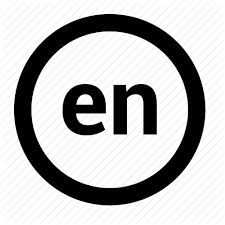Aspectual variability of information culture in the history of the english language
Abstract
The paper is devoted to a very interesting period in the history of the formation of the English national language which took place in the XYI century known as the late Renaissance. The author presents his point of view on such an aspect of the epoch as the transformation of the philosophy of understanding as a factor in the development of information culture of the era when the worldview criteria of the language interpreter became especially important factor of scientific thinking. This idea fully explains the direction of the process of variability of linguistic points of view on the language of the period.
References
Gukhman M.M., Semenyuk N.N., Babinski N.S. The history of the German literary language of the XVI-XVIII centuries. - M.: Nauka, 1984. -- 246 p.
Supine L.P. The problems of normativity in the history of English lexicography (XV-XX centuries) - Leningrad: Publishing house of Leningrad State University, 1979. - 164 p.
Chesterfield. Letters to the son. Maxim. -Vologda, 1974. - 351 p.
Bacon Frencis. A Letter to Mr. Tobie Mathew (1623)-In.: The Works of Lord Bacon in 2 vols. London, 1841, vol.2. – Pp.212-387.
Baugh A.C. History of the English Language. – N.-Y., 1986. – 506 p.
Craigie W.A. The critique of pure English from Caxton to Smollett. – Soc. For Pure English/ Oxford, 1946, tract N LXV, P. 115.
Moore J.L. Tudor – Stuart views on the growth, status, and destiny of the English language, vol. XLI. Hale, 1910. Pp.113-116.
Jones R.F. The Triumph of the English language. -Oxford, 1953.
Yartseva B. Н. Развитие национального литературного английского языка. – М., 1969. – 286с.
Shadmanov K. (2019). Formation of a new integral world outlook and English Renaissance philosophy of language: problems of comprehension of semiotic reality//Cross-Cultural Studies: Education and Science (CCS&ES), vol.4, Issue 11, June 2019, pp.72-81.

In submitting the manuscript to the International Journal on Integrated Education (IJIE), the authors certify that:
- They are authorized by their co-authors to enter into these arrangements.
- The work described has not been formally published before, except in the form of an abstract or as part of a published lecture, review, thesis, or overlay journal.
- That it is not under consideration for publication elsewhere,
- The publication has been approved by the author(s) and by responsible authorities – tacitly or explicitly – of the institutes where the work has been carried out.
- They secure the right to reproduce any material that has already been published or copyrighted elsewhere.
- They agree to the following license and copyright agreement.
License and Copyright Agreement
Authors who publish with International Journal on Integrated Education (IJIE) agree to the following terms:
Authors retain copyright and grant the International Journal on Integrated Education (IJIE) right of first publication with the work simultaneously licensed under Creative Commons Attribution License (CC BY 4.0) that allows others to share the work with an acknowledgment of the work's authorship and initial publication in this journal.





1.png)
